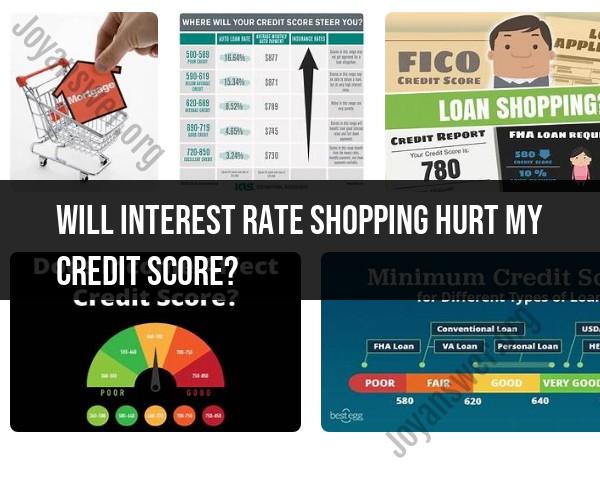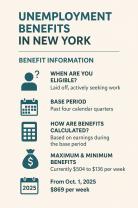Will interest rate shopping hurt my credit score?
Interest rate shopping, specifically for loans such as mortgages or auto loans, typically does not hurt your credit score significantly if done within a relatively short time frame. This is because credit scoring models take into account the fact that consumers may want to compare loan offers to find the best terms. Here's how it works:
Rate Shopping Period: Credit scoring models typically recognize that when you're shopping for a specific type of loan, like a mortgage or auto loan, you may apply with multiple lenders within a short period. This is usually called a "rate shopping" or "inquiry shopping" period. The specific timeframe can vary but is often around 14 to 45 days, depending on the credit scoring model.
Grouping of Inquiries: During this shopping period, multiple credit inquiries for the same type of loan are often grouped together and treated as a single inquiry for the purpose of calculating your credit score. This means that multiple inquiries within the shopping window have a reduced impact compared to multiple separate inquiries.
Limited Impact: Inquiries typically account for a relatively small portion of your overall credit score, so the impact of rate shopping on your credit score is generally minor.
However, there are a few important considerations:
Make sure you are genuinely rate shopping for a specific type of loan within a short timeframe. If you space out your loan applications over a more extended period or apply for various types of credit, it can have a more significant and negative impact on your credit score.
Not all credit scoring models handle rate shopping in the same way. While many FICO credit scoring models offer a rate shopping window, other models, like VantageScore, may not. It's essential to understand the scoring model used by the lender you're working with.
Rate shopping applies primarily to loans like mortgages and auto loans. Rate shopping for credit cards or other types of revolving credit may be treated differently.
In summary, interest rate shopping for loans like mortgages or auto loans is generally designed to have a minimal impact on your credit score, provided you do it within the recommended timeframe. It's essential to be informed about the credit scoring model used by the lender and to be cautious about applying for multiple types of credit within a short period.
The effects of interest rate shopping on your credit score
Interest rate shopping is the process of comparing interest rates from different lenders before choosing a loan or credit card. It is a smart way to save money over the life of the loan or credit card. However, interest rate shopping can also have a temporary impact on your credit score.
When you apply for a loan or credit card, the lender will usually do a hard inquiry on your credit report. A hard inquiry can lower your credit score by a few points. However, the impact of a hard inquiry is usually small and temporary. Your credit score should recover within a few months.
Strategies for smart interest rate comparison and negotiation
There are a few things you can do to compare interest rates and negotiate the best deal without harming your credit score:
- Get pre-approved. Pre-approval is a process where a lender reviews your credit and gives you an estimate of the interest rate and loan terms you qualify for. Pre-approval usually only results in a soft inquiry on your credit report, which does not affect your credit score.
- Compare interest rates from multiple lenders. You can compare interest rates online or by contacting different lenders directly.
- Negotiate with the lender. Once you have found a lender with a good interest rate, you may be able to negotiate for an even better deal. Consider asking for a lower interest rate, shorter loan term, or waived fees.
Mitigating potential credit score fluctuations when shopping for rates
There are a few things you can do to mitigate potential credit score fluctuations when shopping for rates:
- Space out your applications. When you apply for multiple loans or credit cards within a short period of time, each hard inquiry can have a small impact on your credit score. To minimize the impact, try to space out your applications by at least 14 days.
- Be strategic about which lenders you apply to. Some lenders are known to do a soft inquiry before they do a hard inquiry. If you are unsure whether a lender will do a hard inquiry, you can ask them directly.
- Consider using a pre-qualification service. Some websites offer pre-qualification services where you can compare interest rates from multiple lenders without having to apply for each loan or credit card individually. This can help to reduce the number of hard inquiries on your credit report.
Tips for maintaining a healthy credit profile while rate shopping
Here are a few tips for maintaining a healthy credit profile while rate shopping:
- Pay your bills on time and in full each month. Payment history is the most important factor in your credit score.
- Keep your credit utilization low. Credit utilization is the amount of credit you are using compared to your total available credit. A credit utilization of 30% or less is considered ideal.
- Don't open too many new accounts in a short period of time. Opening too many new accounts can lower your credit score and make it more difficult to qualify for loans and credit cards in the future.
Best practices for securing the most favorable interest rate without harming your credit score
The best practices for securing the most favorable interest rate without harming your credit score include:
- Get pre-approved before you start shopping. This will give you an idea of the interest rate and loan terms you qualify for and help you to focus your search on lenders that are likely to offer you a good deal.
- Compare interest rates from multiple lenders. Don't just accept the first offer you get. Take the time to compare interest rates from different lenders to make sure you are getting the best deal possible.
- Negotiate with the lender. Once you have found a lender with a good interest rate, don't be afraid to negotiate for an even better deal. Consider asking for a lower interest rate, shorter loan term, or waived fees.
- Be mindful of the number of applications you submit. Applying for too many loans or credit cards in a short period of time can lower your credit score. Space out your applications by at least 14 days to minimize the impact.
By following these tips, you can shop for interest rates and secure the best deal possible without harming your credit score.











